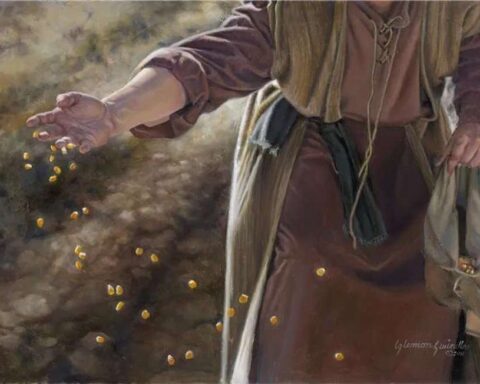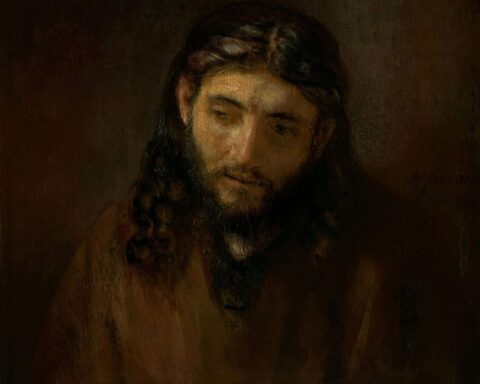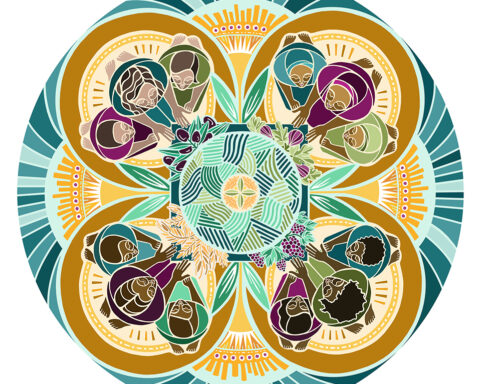A Story of Resistance
“Oh God. I am not a dancer.”
These are the words that came out of my mouth as I opened the week 3 lesson of my Artful Leadership course. Each week, we’ve studied a different art form with the goal of learning more about ourselves as leaders and becoming more adaptive — curious, creative, and courageous leaders.
Visual art, of course, was a fun one for me. I teach art classes. Music was interesting. My husband is a musician, and I can fumble my way around a guitar. But dance. When I watch my youngest child, my little ballerina, gracefully leap across the stage, I am baffled about where that gene came from. She is amazing.
In contrast, at least in my mind’s eye, my dance skills are more on par with Napoleon Dynamite’s — awkward and clunky. Or Miranda Sings, cringeworthy and embarrassing. In fact, if you attended Linden West Elementary School in the 90s with me, you might know there’s some truth to this. Let’s just say that when a friend of mine and I took the stage unrehearsed to cut a rug to a Backstreet Boys song during the fourth grade talent show, it was less than dynamite. I still have flashbacks.
Just a little insight into why “Oh God, I am not a dancer” was my gut reaction to this assignment. But when students come into my art classrooms and say, “I am not an artist,” I don’t let that fly. I remind them that they were created by a creative God to be creative. We are all artists.
Embracing Movement
The Holy Spirit nudged me. That same logic applies to dance. God is also a God always on the move, who created us with the ability to move. And while my moves might not be stage-worthy, I can move to honor God. And I can practice those moves until my skills improve.
The first exercise they had us do was Motitio Divina, which is Latin for prayer through movement. It’s also called a body prayer. It’s four motions all done with your hands and arms:
- Await (hands at waist, cupped up to receive): Await God’s presence, however it may come to you.
- Allow (reach up, hands open): Allow a sense of God’s presence to come — or not — and be what it is.
- Accept (hands at heart, cupped towards body): Accept as a gift whatever comes or does not come. Accept that you don’t know everything, that you are not in charge.
- Attend (hands outstretched, ready to be responsive): Attend to what you are called to, willing to be present and be God’s love in the world, however God calls you to.
This is the dance of life, of living into God’s will and leading. And it might feel foreign at first. It might feel hard or awkward, but this is dance. Moving with the will of God.
The Art of Release
To truly dance with God, to live in sync with God’s will, just like physically dancing, we have to practice the art of release. The definition of release (verb) is this: “To relieve from something that confines, burdens, or oppresses.” Letting go of shame, of worry, of guilt, anxiety, etc., and learning to be free to go with the flow of where God is leading. The intention is to follow his lead in this dance of life.
For whatever reason, it’s not a natural inclination for us to want to release. We want to hold on to what we perceive as good and the not-so-good.
A Biblical Perspective
When I think of scriptures about finances and release, of course, the first to come to mind is the young man’s interaction with Jesus in Matthew 19. Let’s look at it.
Just then a man came up to Jesus and asked, “Teacher, what good thing must I do to get eternal life?”
Matthew 19:16-22 (NIV)
“Why do you ask me about what is good?” Jesus replied. “There is only One who is good. If you want to enter life, keep the commandments.”
“Which ones?” he inquired.
Jesus replied, “‘You shall not murder, you shall not commit adultery, you shall not steal, you shall not give false testimony, honor your father and mother,’ and ‘love your neighbor as yourself.’”
“All these I have kept,” the young man said. “What do I still lack?”
Jesus answered, “If you want to be perfect, go, sell your possessions and give to the poor, and you will have treasure in heaven. Then come, follow me.”
When the young man heard this, he went away sad, because he had great wealth.
In The Message version, that last verse says this: He was holding on tight to a lot of things, and he couldn’t bear to let go.
Challenges of Release
In the world of art, it’s hard for me to release and just dance, to just go with the flow. In the world of survival, it’s hard to release finances and resources.
A survey from Bankrate showed that 82 percent of Americans have money concerns at least monthly. We probably all feel that. But did you know that nearly 25% of Jesus’ words in the New Testament deal with biblical stewardship? One out of 10 verses in the Gospels deals with money. There are more than 2,000 scriptures on money, wealth, and possessions throughout the Bible.
Research shows that there are five key areas that we need to focus on in order to flourish and thrive: faith, relationships, vocation, physical and mental health, and finances. God wants to see us thrive in these areas. That is his Kingdom come, his will being done in people’s lives. And scripture is here to help us navigate toward his will.
Navigating Financial Release
Can we await, allow, accept, and attend to God’s will in the area of resources and finances?
The problem in this passage of scripture is not that this young man has things, money, and resources. It’s his reliance on them for his sense of security. When the things we have or don’t have begin to hinder our willingness or ability to follow after Jesus, that’s when things become a problem.
When we don’t have things, we have to be reliant on God to provide them. When we do have things, we should be reliant on God to tell us how to share them. Both can be scary places to be. We might find ourselves asking, will God provide? Or do I want to part with this?
In Matthew 19, he didn’t want to part with his things. It was too great a cost.
Cultural Reflections
He was living in an honor/shame culture with an economic system that fostered reliance on and faith in possessions. If you have things, you are honorable. If you don’t, that would bring shame on you and your family. Does this sound familiar? Our culture is the same.
This man had followed all the commandments — every single one! But there was one thing left: he needed to stop placing his faith in his possessions to save him. To let go. To share. This is difficult.
Whether we are coming from a place of not enough or more than enough, we must release the things we believe will save us. What would it mean to release their control over our lives? What would it mean to release the anxiety, fear, and stress related to finances? How might that change your life?
Finding Release
This process involves letting go of the possessions we mistakenly believe will save us and also releasing the expectations tied to this belief. If possessions cannot save us, then what can? Or rather, who can save us? Spoiler alert: God’s got this.
The Cost of Release
Perhaps we have to count the cost of release. It’s understandable. Release might mean giving up something you love. Release might make you look silly, crazy, or reckless.
But release could also mean giving up something like worry and putting to bed that question of how things will be taken care of if they aren’t in the forefront of your mind all the time. Or giving up shame around your money story. Perhaps it kept you motivated to not repeat a chapter of your story.
At some point, we have to move past counting the cost to the actual release of our story into God’s hands.
Biblical Rhythms of Release
In the Old Testament, we find natural rhythms of release experienced by all Israelites.
In Deuteronomy 15:1-11, we find instructions to cancel all Israelite debts every seven years and to give generously to the poor.
In Leviticus 25, we learn about the Year of Jubilee, which was every 50 years. The Year of Jubilee represents a time of liberation from all forms of debt and bondage. During this year, prisoners and captives were set free, slaves were released, debts were forgiven, and properties were returned to their original owners.
The Israelites had regular rhythms of release. I just have to wonder, is it our time? Is this our year of Jubilee, yours and mine? Our year to be set free?
Writing a New Story
What if we decided to release our money stories to God and let Him write a different story?
I love this question from Jen Hatmaker: “What if we tried together? What if a bunch of Christians wrote a new story, becoming consumers the earth is groaning for? I suspect we’d find that elusive contentment, storing up treasures in heaven like Jesus told us to. I’m betting our stuff would lose its grip and we’d discover riches contained in a simpler life, a communal responsibility. Money is the most frequent theme in scripture; perhaps the secret to happiness is right under our noses. Maybe we don’t recognize satisfaction because it is disguised as radical generosity, a strange misnomer in a consumer culture.”
Community Release
Here’s the thing about Jubilee: It’s not a solo event. It’s a community event. When we practice release and step into freedom, it often opens the door for someone else to do the same.
God is inviting us to release all that has held us back in order to fully live into God’s story for our lives.
So, how about it? Will you be brave? Will you try a new dance step? Will you join me in the journey toward release? Will you await, allow, accept, and attend to God’s will in your life?
We might be stumbling over our feet when we first get started. But with time, we’ll learn how to gracefully and faithfully glide in the dance of life like my little ballerina has.










